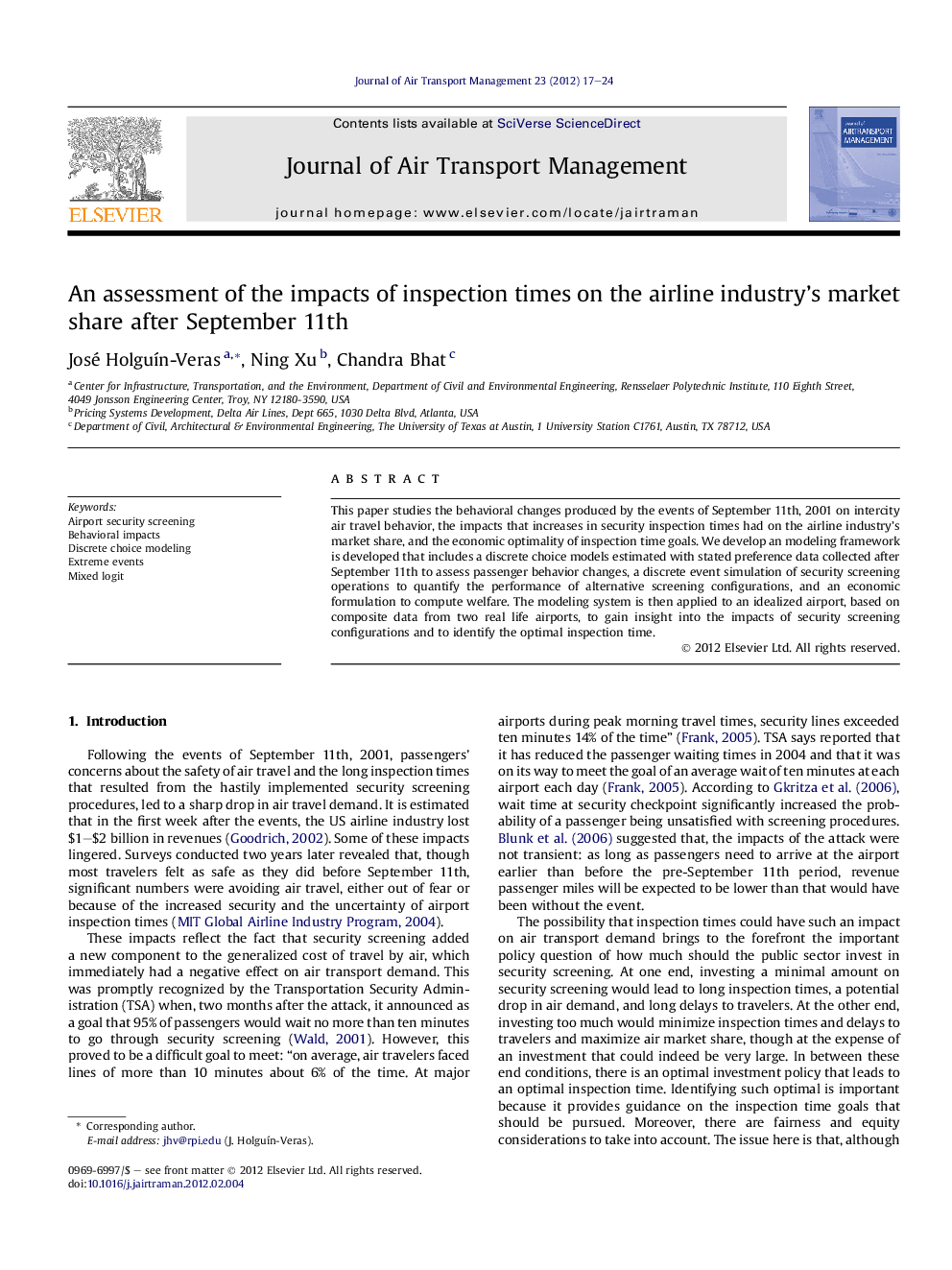| Article ID | Journal | Published Year | Pages | File Type |
|---|---|---|---|---|
| 1030923 | Journal of Air Transport Management | 2012 | 8 Pages |
This paper studies the behavioral changes produced by the events of September 11th, 2001 on intercity air travel behavior, the impacts that increases in security inspection times had on the airline industry’s market share, and the economic optimality of inspection time goals. We develop an modeling framework is developed that includes a discrete choice models estimated with stated preference data collected after September 11th to assess passenger behavior changes, a discrete event simulation of security screening operations to quantify the performance of alternative screening configurations, and an economic formulation to compute welfare. The modeling system is then applied to an idealized airport, based on composite data from two real life airports, to gain insight into the impacts of security screening configurations and to identify the optimal inspection time.
► The paper estimates the impacts of passenger inspection times on the air transport market after September 11th 2001. ► The analysis is based on stated preference data, discrete choice models, and simulation. ► Reducing inspection times has a noticeable effect on an airline’s market share. ► The economic optimal security inspection time is longer than current guidelines.
